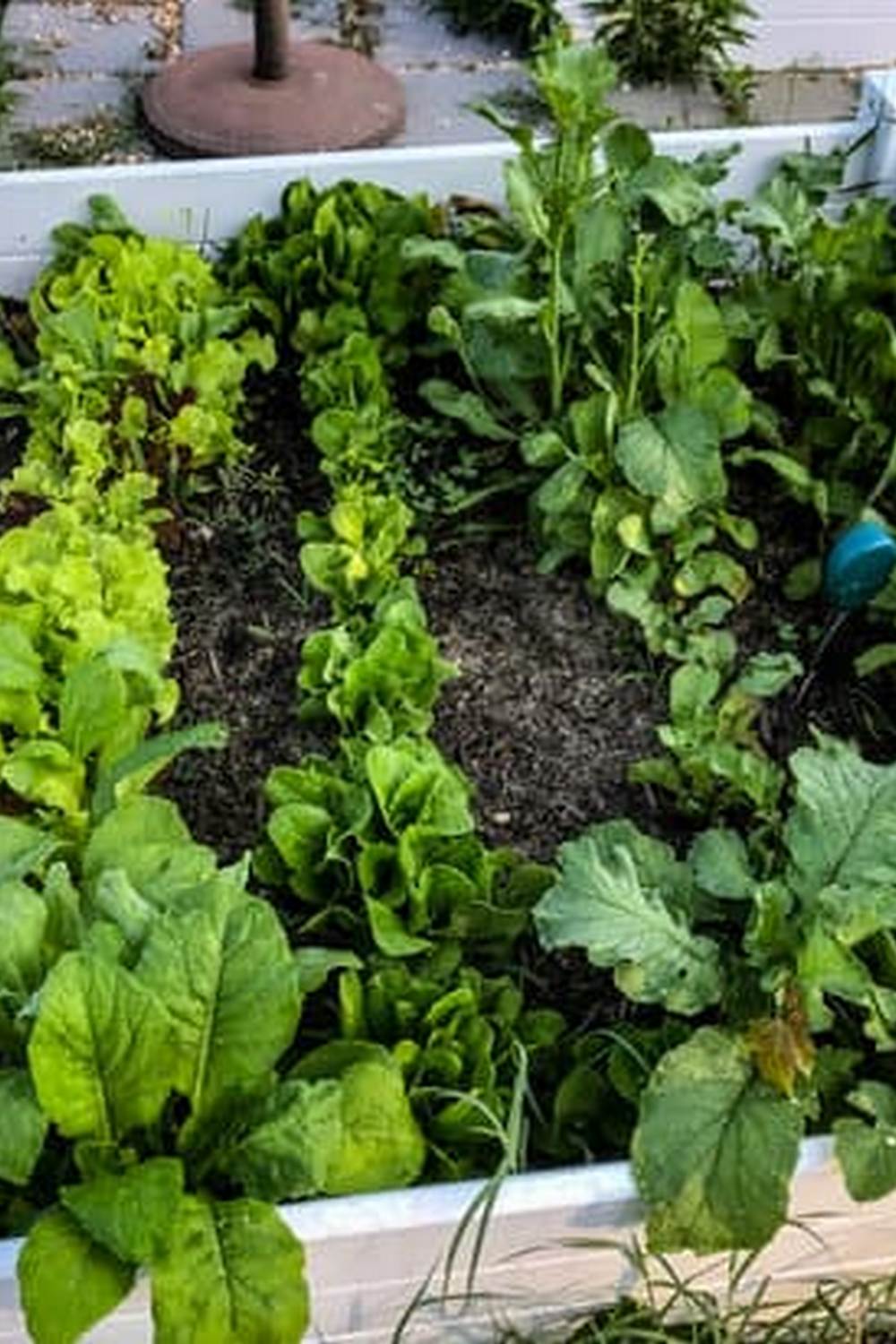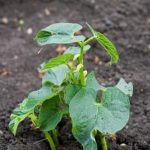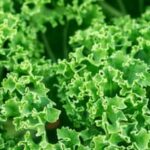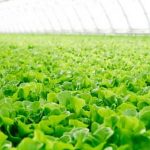In vegetable gardens, dealing with pests is a common challenge that can threaten the health and yield of your crops. One effective way to combat these unwelcome intruders is by using insecticides. But with so many options available, the question remains: what’s the best insecticide for vegetable gardens?
Insecticides play a crucial role in protecting your vegetable plants from harmful insects that can cause damage and reduce your harvest. They help to maintain a healthy and thriving garden by keeping pests at bay. However, understanding the different types of insecticides is key in making an informed decision on which one to use in your garden.
When it comes to choosing an insecticide for your vegetable garden, there are various factors to consider such as the type of pests you’re dealing with, the level of infestation, as well as your personal preference for chemical or organic options. By taking these factors into account, you can select the most suitable insecticide that will effectively control pests while being safe for your vegetables and the environment.
Understanding the Different Types of Insecticides
Insecticides play a crucial role in maintaining the health and productivity of vegetable gardens by protecting plants from harmful pests. When it comes to choosing the right insecticide for your garden, one of the key decisions you’ll need to make is whether to use chemical-based or organic insecticides. Both types have their own set of advantages and considerations, so it’s important to understand the differences between them before making a decision.
Chemical insecticides are typically formulated with synthetic ingredients that are designed to effectively control a wide range of pests. They often provide quick results and can be highly efficient in combating infestations. However, they can also have negative impacts on beneficial insects, animals, and the environment if not used properly. Some popular chemical insecticides that are commonly used in vegetable gardens include:
- Malathion: A broad-spectrum insecticide that targets a variety of pests such as aphids, caterpillars, and whiteflies.
- Permethrin: Effective against a wide range of insects including beetles, weevils, and leafhoppers.
- Neem oil: Derived from the neem tree, this organic insecticide acts as a repellent and disrupts the growth and development of many pest species.
On the other hand, organic insecticides are derived from natural sources such as plants, minerals, or microbes. They are generally considered safer for both humans and the environment compared to chemical insecticides. While they may require more frequent applications and take longer to show results, organic insecticides can provide effective pest control without leaving harmful residues on crops. Some popular organic insecticides suitable for vegetable gardens include:
- Diatomaceous earth: Made from fossilized remains of diatoms, this powder-like substance works by dehydrating insects upon contact.
- Pyrethrum: Extracted from chrysanthemum flowers, pyrethrum is effective against aphids, beetles, and other soft-bodied insects.
- Bacillus thuringiensis (Bt): A naturally occurring soil bacterium that targets caterpillars specifically.
When deciding between chemical and organic insecticides for your vegetable garden, consider factors such as effectiveness against target pests, environmental impact, cost-efficiency, and personal preferences regarding toxic exposure. By understanding the differences between these two types of insecticides, you can make an informed decision on what’s best for your garden’s specific needs.
Factors to Consider When Choosing an Insecticide for Your Vegetable Garden
When deciding on the best insecticide for your vegetable garden, there are several factors to consider to ensure that you are choosing the most effective and safe option for your crops. It is important to be mindful of the potential impact of insecticides not only on the pests but also on beneficial insects, wildlife, and the environment as a whole. Here are some key factors to keep in mind when selecting an insecticide for your vegetable garden:
- Target Pests: Identify the specific pests that are causing damage to your vegetables. Different insecticides are designed to target specific types of insects, so understanding the pest problem will help you choose the most appropriate product.
- Mode of Action: Consider how the insecticide works and its mode of action. Some insecticides act as stomach poisons, while others work as contact poisons or insect growth regulators. Understanding these mechanisms can help you select the best option for your situation.
- Residual Effect: Determine how long the insecticide will remain active after application. Some insecticides provide long-lasting protection, while others may require more frequent applications. Take into account the life cycle of the pests and how often they reproduce when considering the residual effect.
Considering these factors will help you make an informed decision when choosing an insecticide for your vegetable garden. Whether you opt for a chemical or organic solution, weighing these aspects will help you find the best option that balances effectiveness with minimal impact on your garden ecosystem.
- Consult with local agricultural extension services or experienced gardeners in your area to get recommendations on effective insecticides that are suitable for vegetable gardens in your region.
- Read product labels carefully and follow instructions for proper application rates and timing to maximize effectiveness while minimizing risks to human health and the environment.
- Keep track of pest populations in your garden throughout the growing season and adjust your pest management strategies as needed based on observations of pest activity and plant damage.
Top 5 Chemical Insecticides for Vegetable Gardens
Chemical insecticides can be an effective way to control pests in your vegetable garden, but it’s essential to choose the right product carefully to ensure the safety of your plants, yourself, and the environment. When considering what’s the best insecticide for vegetable gardens, there are several factors to keep in mind.
Some chemical insecticides may be more potent against specific pests, while others may have a broader spectrum of control. Additionally, it’s crucial to consider the potential impact on beneficial insects such as bees and other pollinators.
One popular chemical insecticide used in vegetable gardens is neem oil. Neem oil is derived from the seeds of the neem tree and has insecticidal properties that can help control a variety of common garden pests like aphids, whiteflies, and caterpillars. Another chemical insecticide that is widely used is spinosad, which is derived from naturally occurring bacteria. Spinosad is effective against many chewing and sucking insects but has minimal impact on beneficial insects when used correctly.
| Chemical Insecticide | Main Pest Targeted |
|---|---|
| Neem Oil | Aphids, Whiteflies, Caterpillars |
| Spinosad | Chewing and Sucking Insects |
Lastly, pyrethrin-based insecticides are another popular choice for controlling pests in vegetable gardens. Pyrethrins are natural insecticides derived from chrysanthemum flowers and are known for their quick knockdown effect on insects like beetles, aphids, and leafhoppers. However, it’s important to note that while these chemical insecticides can be effective against pests in your vegetable garden, they should be used sparingly and according to label instructions to minimize any adverse effects on non-target organisms or the environment.
Top 5 Organic Insecticides for Vegetable Gardens
Neem Oil
Neem oil is a popular organic insecticide for vegetable gardens due to its effectiveness in controlling a wide range of pests such as aphids, beetles, caterpillars, and mites. It works by disrupting the feeding and reproductive behavior of insects, ultimately leading to their demise.
To use neem oil in your garden, simply mix it with water according to the instructions on the label and spray it on your plants. However, it is important to note that neem oil should be applied in the evening or early morning to avoid harming beneficial insects like bees.
Diatomaceous Earth
Diatomaceous earth is a natural insecticide made from the fossilized remains of aquatic organisms known as diatoms. When applied in powder form around plants, diatomaceous earth works by dehydrating insects through its abrasive texture, causing them to perish. This organic insecticide is effective against pests like slugs, snails, ants, and beetles without harming beneficial insects or other wildlife in the garden. It is important to reapply diatomaceous earth after rain or irrigation since moisture reduces its effectiveness.
Garlic Oil Spray
Garlic oil spray is another effective organic insecticide for vegetable gardens that repels a variety of pests due to its strong odor and taste properties. It can control common garden pests such as aphids, caterpillars, and spider mites without posing any harm to humans or pets.
To make garlic oil spray at home, simply combine minced garlic cloves with mineral oil or liquid soap and water. This mixture can be sprayed directly on plants affected by pests or used preventatively to deter infestations.
Overall, when choosing an organic insecticide for your vegetable garden, consider factors such as the type of pests you are dealing with, the level of infestation, and the potential impact on beneficial insects and the environment. Experimenting with different organic options can help you find the best solution that balances pest control while maintaining a healthy garden ecosystem. Remember that consistent monitoring and treatment are key to effectively managing pest problems in your vegetable garden using organic methods.
How to Properly Apply Insecticides in Your Vegetable Garden
Proper application of insecticides in your vegetable garden is crucial to effectively control pests while ensuring the safety of your plants, the environment, and yourself. By following some key steps and guidelines, you can maximize the efficacy of the insecticide treatment and minimize any potential risks.
Timing of Application
One important factor to consider when applying insecticides in your vegetable garden is the timing. It is best to apply insecticides early in the morning or late in the afternoon to avoid harming beneficial insects like bees that are active during midday. Additionally, make sure to check the weather forecast before spraying insecticides – avoid applying them on windy days or just before rainfall as it might wash away the chemicals.
Proper Dilution and Mixing
When using insecticides, always read and follow the instructions on the label carefully. Make sure to dilute the insecticide properly according to the manufacturer’s recommendations. Use clean measuring tools and equipment to ensure accurate mixing. Avoid using more than the recommended dosage as it can harm your plants and pose a risk to beneficial insects.
Application Techniques
Ensure thorough coverage of all plant surfaces when applying insecticides. Use a sprayer that provides fine droplets for better distribution. Start spraying from the furthest corner of your garden and work your way towards you, aiming for even coverage. Be cautious not to over-saturate the plants with excessive spray, as it may lead to runoff and waste of product.
By following these proper application techniques when using insecticides in your vegetable garden, you can effectively manage pests while safeguarding your crops’ health and maintaining a safe environment for all organisms involved. Remember also to consider natural alternatives and integrated pest management strategies for long-term pest control solutions.
Safety Precautions When Using Insecticides in Vegetable Gardens
Using insecticides in vegetable gardens can be effective in controlling pest infestations and protecting your plants, but it is crucial to follow safety precautions to ensure the health of yourself, your family, and the environment. One of the most important safety measures when using insecticides is to always read and follow the manufacturer’s instructions carefully. This includes information on application rates, proper dilution, protective equipment needed, and recommended timing for application.
Another key safety precaution is to avoid using insecticides on windy days to prevent drift that can harm unintended targets such as beneficial insects or neighboring crops. It is also essential to store insecticides in their original containers with labels intact and away from children or pets. Proper disposal of unused insecticides and empty containers according to local regulations is necessary to prevent environmental contamination.
Wearing appropriate personal protective equipment (PPE) when applying insecticides is vital for your safety. This may include gloves, long-sleeved shirts, long pants, closed-toe shoes, goggles, and a mask to prevent skin contact, inhalation, or eye exposure. Additionally, wash your hands and any exposed skin thoroughly after handling or applying insecticides. By following these safety precautions diligently, you can effectively manage pests in your vegetable garden while minimizing risks to human health and the environment.
| Safety Measure | Description |
|---|---|
| Read Manufacturer’s Instructions | Follow guidelines on application rates, dilution, protective gear needed. |
| Avoid Windy Days | Prevent drift by applying on calm days. |
| Proper Storage and Disposal | Store in original containers away from children/pets; dispose of properly. |
Natural Alternatives to Commercial Insecticides for Vegetable Gardens
When it comes to choosing insecticides for your vegetable garden, many gardeners prefer to use natural alternatives to avoid potential harmful chemicals. Natural insecticides are derived from plants, minerals, or other naturally occurring substances and are often considered a safer option for both humans and the environment. These alternatives can effectively control pests while minimizing the risk of harm to beneficial insects, wildlife, and plant life in your garden.
One popular natural alternative to commercial insecticides is neem oil. Neem oil is extracted from the seeds of the neem tree and has been used for centuries as a natural pesticide. It works by disrupting the feeding and reproduction habits of insects, ultimately reducing their population in your vegetable garden. Neem oil is effective against a wide range of common garden pests such as aphids, whiteflies, and caterpillars.
Another natural insecticide that is gaining popularity among organic gardeners is diatomaceous earth (DE). DE is a powdery substance made from crushed fossilized algae and works by dehydrating insects upon contact. It can be sprinkled around plants in your vegetable garden to deter pests like ants, slugs, and beetles. DE is non-toxic to humans and pets but should be applied carefully to avoid inhaling the dust particles.
Conclusion
In conclusion, finding the best insecticide for your vegetable garden ultimately depends on your individual preferences, gardening practices, and environmental considerations. Whether you opt for chemical or organic insecticides, it is essential to prioritize the health of your plants while also being mindful of the impact on beneficial insects and the overall ecosystem of your garden.
When deciding on the right insecticide for your vegetable garden, consider factors such as effectiveness against target pests, application frequency, mode of action, and potential risks to human health and the environment. Additionally, always follow label instructions carefully and adhere to safety precautions to minimize any negative consequences.
Ultimately, what’s the best insecticide for vegetable gardens may vary from one gardener to another. It is crucial to experiment with different options, observe their effects on your plants and surrounding ecosystem, and make informed choices based on your specific needs. By staying informed about available options and practicing responsible pesticide use, you can effectively manage pests in your vegetable garden while promoting a healthy environment for both plants and beneficial insects.
Frequently Asked Questions
What Is the Best Bug Repellent for Vegetables?
Choosing the best bug repellent for vegetables can depend on various factors such as the type of pests you are dealing with, your gardening methods, and your personal preferences. Some popular options include neem oil, insecticidal soap, and homemade garlic or chili pepper sprays.
Can I Use Insecticide in My Vegetable Garden?
Using insecticides in your vegetable garden should be done with caution to avoid any harm to yourself, your plants, or beneficial insects like bees. If you choose to use insecticides, opt for organic or natural options that are safe for edible crops and follow the instructions carefully to minimize any negative impact.
What Is the Best Pesticide to Use on Vegetables?
When it comes to pesticides for vegetables, it’s essential to prioritize safety and effectiveness. Organic pesticides like pyrethrin, diatomaceous earth, and spinosad are commonly recommended due to their low toxicity levels compared to synthetic chemicals. Always read the labels thoroughly and apply sparingly to protect both your crops and the environment.

If you’re looking to get into vegetable gardening, or are just looking for some tips on how to make your current garden better, then you’ve come to the right place! My name is Ethel and I have been gardening for years. In this blog, I’m going to share with you some of my best tips on how to create a successful vegetable garden.





